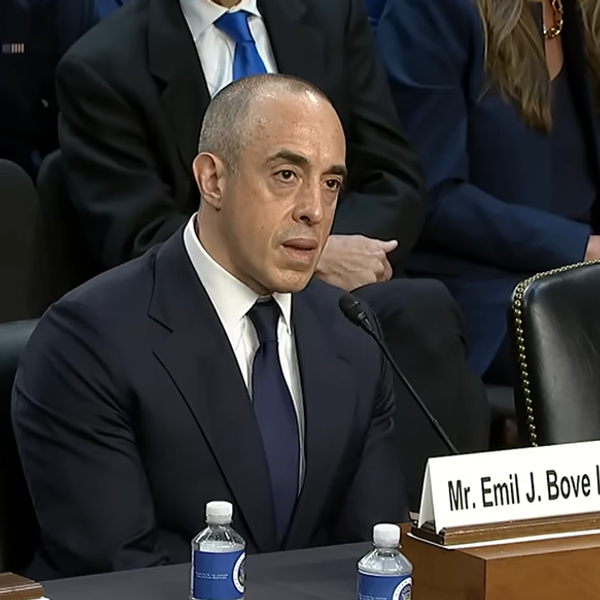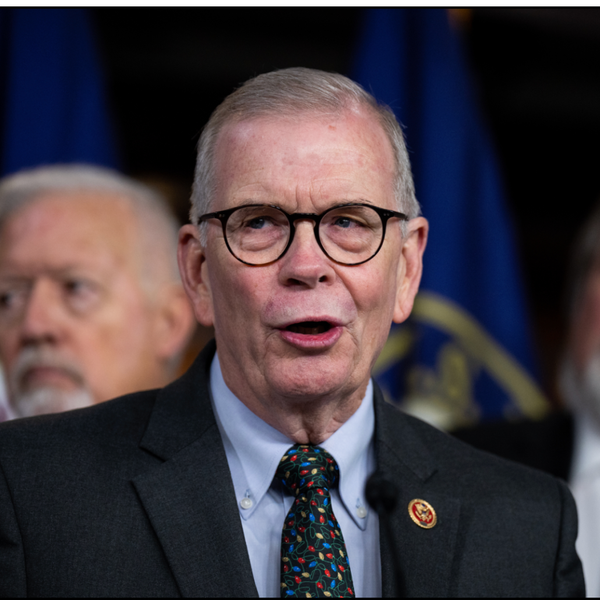Oct. 21 (Bloomberg) — The age-old tension between federal authority and states’ rights is back in a big way in this year’s presidential campaign, with Republican candidates taking the let-the-states-handle-it position on everything from environmental regulation to health-care reform.
Now President Barack Obama’s education policy, a rare bipartisan winner, may also be headed back to the states, which were collectively responsible in recent years for dumbing down standards, ignoring obvious failure and otherwise jeopardizing the whole future of the country.
With the support of Republicans, Obama over the past three years has moved aggressively to set high education standards from Washington and let states and localities figure out how to meet them. But now the Tea Party is pushing Republicans to abolish the Department of Education and resist any federal “intrusions” into education.
Letting the “laboratories of democracy” take the lead makes sense in certain areas, like when states use tax breaks to compete for foreign investment. But it’s more often a green light for a race to the bottom. Texas Governor Rick Perry’s radical idea of abolishing the Environmental Protection Agency (founded under President Richard Nixon) in favor of state agencies would mean states competing to allow the most pollution.
Bursts of unneeded federalism are usually a Republican malady. But on education, a powerful Democratic Party interest group is also embracing the states’ rights argument made famous by John C. Calhoun in the antebellum South.
Bizarre Bedfellows
Talk about bizarre bedfellows. The National Education Association, the country’s largest teachers’ union, and the Tea Party are both arguing against federal accountability standards in education.
The NEA’s position is no surprise. Although its liberal members support federal mandates for special education, desegregation and a hundred other things, God forbid they should be judged by federal standards on the little matter of whether their students are actually learning anything. The union prefers the status quo, where they use their muscle and sophistication to turn every state and local accountability effort into mush.
With the help of hidebound union leaders, superintendents and bureaucrats who care more about their privileges than kids, 17 states have actually lowered standards in recent years to make student test scores look better. Meanwhile, about 90 percent of local school districts that receive Title I aid (intended to help schools that have a high percentage of low-income students) have figured out how to game the system to continue getting funding from Washington while doing virtually nothing to improve their worst schools.
Anti-Mandate Mood
As the Senate considers a bill that would overhaul President George W. Bush’s failed No Child Left Behind Act, an anti-mandate mood has taken over. The individual mandate requiring the uninsured to buy health-care coverage under the Affordable Care Act is now such political poison that the idea of Washington requiring anything from anybody is anathema on the right.
So now the pending education bill contains no requirement that states implement rigorous teacher and principal evaluation systems (a must for improving schools). And it would attach almost no other strings to federal aid beyond the nebulous standard of “continuous improvement.” Where else but in the American education system could moving from an F to a D on a self-graded exam be seen as success?
Ideology Over Experience
Even Republican Senator Lamar Alexander of Tennessee, who understood the importance of accountability when he was secretary of education 20 years ago, is now saying that moving away from guaranteed job security for teachers and toward performance standards should be voluntary. He must know that this approach has been shown countless times to have no effect. For Alexander and other Republicans who have been saying sensible things on education for years, ideology is now trumping their own experience as the Tea Party’s influence grows.
But look on the bright side: Today’s congressional dysfunction suggests that the odds are decent that the whole bill fails.
That means Education Secretary Arne Duncan can move forward with his announced plan to provide waivers to states that want to get out from under unrealistic NCLB requirements, especially the demand that every student be proficient in reading and math by 2014. These waivers are expected to go mostly to states that have already proved they’re at the forefront of accountability as part of Obama’s terrific Race to the Top program, the federal competition for grant money that drove reform across the country.
The Next Level
Duncan told me this week that although the official title of the waiver program is “Regulatory Flexibility,” he knows he’ll be judged by how much the waiver process builds on Race to the Top to expand accountability.
He says he told state education officials, “This is an opportunity to take reform to the next level — not just to check the boxes. We’re going to say, ‘Here’s where you’re hitting the mark, here’s where you’re missing, and here’s where you can improve.’ We have no choice but to withhold the waivers if they fail.”
We’ll see if Obama and Duncan have the fortitude to follow up their strong work in education by sailing directly into a stiff anti-mandate headwind. Their legacy — and American competitiveness — will depend on it.
(Jonathan Alter is a Bloomberg View columnist and the author of “The Promise: President Obama, Year One.” The opinions expressed are his own.)
Copyright 2011 Bloomberg.








